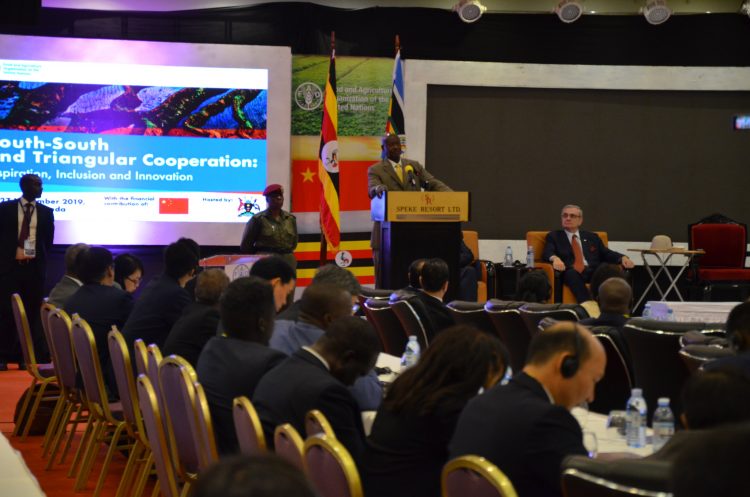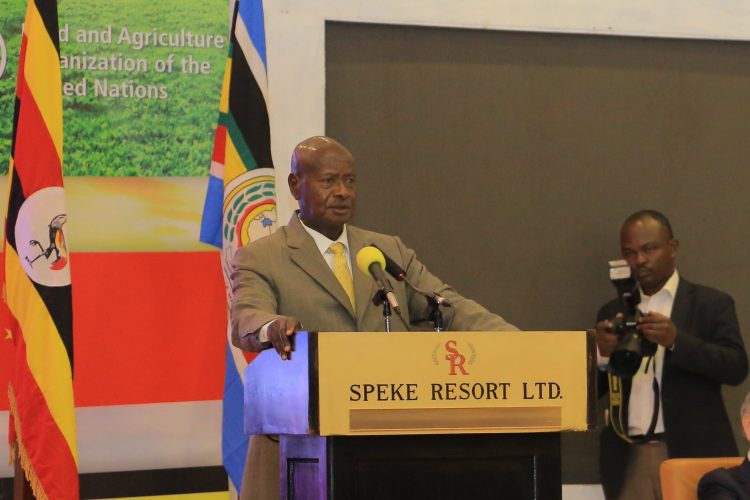
President Yoweri Museveni has ordered for the cancellation of land titles issued to Chinese campanies in Lwera and other areas to grow rice in wetlands.
Mr. Museveni while officiating the FAO-China tenth anniversary at the Speke Resort Munyonyo, on Tuesday morning said wetlands are part of public land which should not be owned by individuals for their selfish interests.
” I don’t like swamp rice, its very dangerous to our environment,” he said telling Chinese investors to immediately cease the practice.
Mr. Director General [Yi Yang] these people grow rice in from the Nile tributaries. What they call swamps, are actually Nile tributaries,” he said emphasizing that “No more swamp rice.”
“Let us grow dry land rice or irrigation rice, I don’t mind pulling water from the tributaries, that’s okay, but swamps, that is very disastrous,” the President added.
He faulted the National Environment Management Authority (NEMA) of negligence and failure to guide investors.
In July this year, media reported that NEMA had cleared Chinese investors operating in Lwera to expand their rice fields on Block 184 Plot 254, 255, 256, and 258, Magezi-Kizungu ward Lukaya Town Council, Kalungu District.
Mr. Museveni has since blocked the arrangement noting that growing in swamps is unacceptable and it must be stopped.
On weekend, Mr Museveni also directed all concerned authorities to ensure that people whom he said have invaded wetlands in Luweero District leave with immediate effect.
“Let us not destroy our environment, which has lots of other negative spill-over effects,” the President said.
Mr. Museveni blamed the current massive flooding in different parts of the country on environmental degradation.
Over the last 15 years, however, Uganda has lost over 30% of the wetlands. The declining capacity for wetlands to provide critical ecosystem services has resulted; increased flooding (damage to infrastructure, lives), Reduced productivity, Silting of water bodies – effect on fisheries and increased water treatment costs for the national water supply agency.






